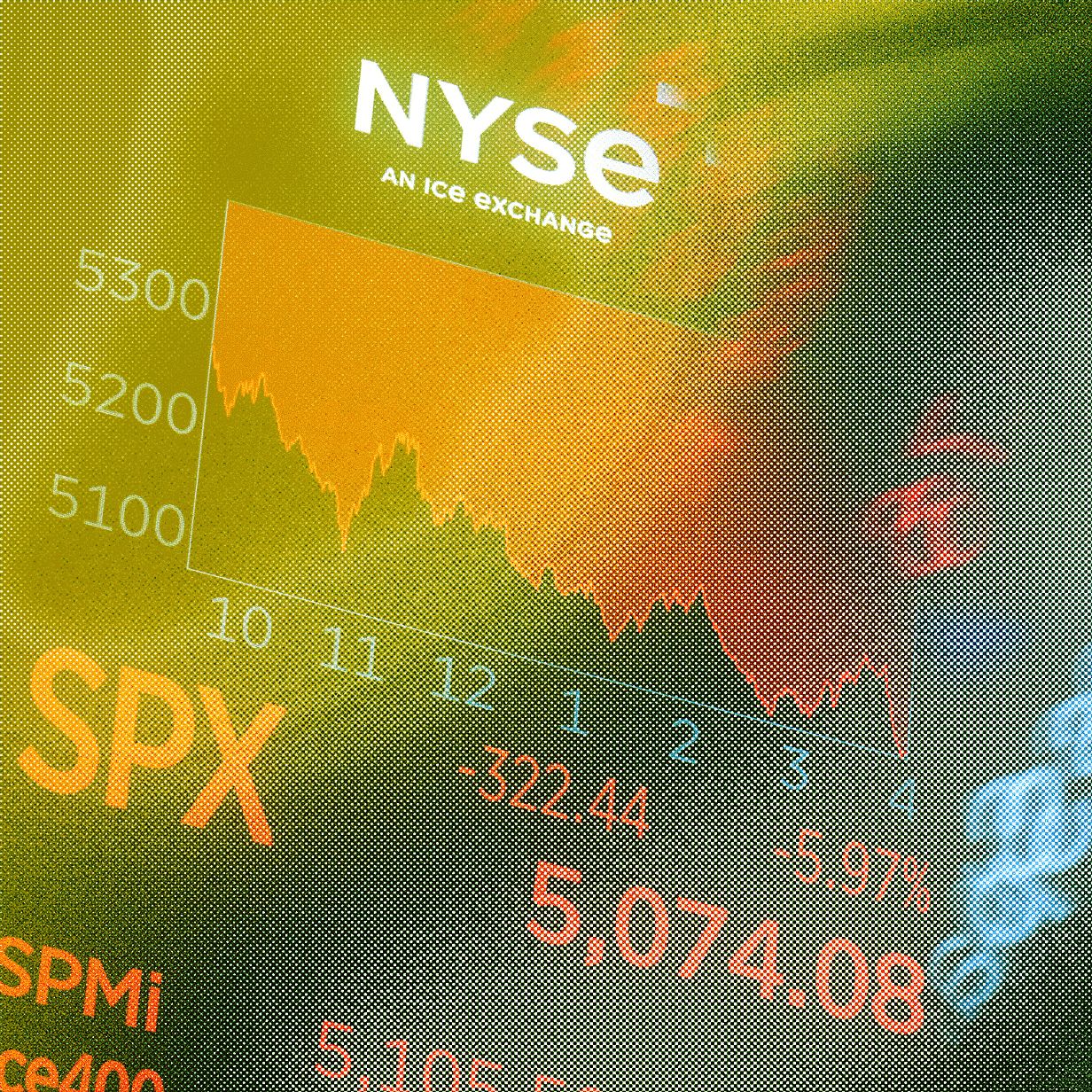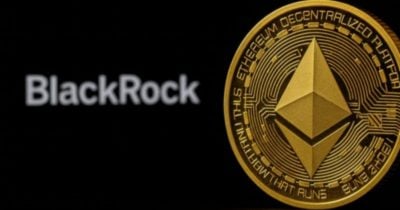If you buy something using links in our stories, we may earn a commission. Learn more.
WIRED’s Louise Matsakis joins Zoë Schiffer, WIRED’s director of business and industry, to talk about this week’s market madness and why the US probably won’t have armies of people screwing little screws into iPhones anytime soon.
Articles mentioned in this episode:
Trump Tariffs Hit Antarctic Islands Inhabited by Zero Humans and Many Penguins by Caroline Haskins and Leah Feiger
Trump and DOGE Defund Program That Boosted American Manufacturing for Decades by Paresh Dave and Louise Matsakis
You can follow Zoë Schiffer on Bluesky at @zoeschiffer and Louise Matsakis on Bluesky at @lmatsakis. Write to us at uncannyvalley@wired.com.
How to Listen
You can always listen to this week’s podcast through the audio player on this page, but if you want to subscribe for free to get every episode, here’s how:
If you’re on an iPhone or iPad, open the app called Podcasts, or just tap this link. You can also download an app like Overcast or Pocket Casts and search for “uncanny valley.” We’re on Spotify too.
Transcript
Note: This is an automated transcript, which may contain errors.
Zoë Schiffer: Welcome to WIRED’s Uncanny Valley. I’m WIRED’s director of business and industry, Zoë Schiffer. Today on the show we talk about this week’s market madness and the impact of Trump’s tariffs. I’m joined today by WIRED’s senior business editor, Louise Matsakis, the person I talk to a hundred thousand times a day about everything going on in our newsroom. Welcome to Uncanny Valley, Louise.
Louise Matsakis: Hey, Zoë. I’m glad to be here.
Zoë Schiffer: So let’s jump right in with Monday morning, because yesterday we both logged on to the WIRED.com Slack account and saw this tweet from Walter Bloomberg, an aggregator account on X, saying that President Trump was considering a 90-day pause on the tariffs he had announced just last week. The markets reacted pretty wildly, so, Louise, take us through that.
Louise Matsakis: Yeah. Basically there was this enormous swing, so the markets plunged, and then they turned around, and then they plunged again. And I think that this is just a sign of how volatile things are right now in the global economy. Walter Bloomberg is kind of like one of these accounts on Elon Musk’s X that is sort of like a scourge, I would say. I think his avatar was like stolen from some Russian guy, and it’s totally unrelated. I think that this just shows how muddled the messaging is from the White House about this. I think that the reason that the markets responded so immediately and so intensely is that it sounded like something that Trump might do. Like some people in the administration have framed this as a negotiating tactic and that the tariffs are going to be reversed and that it was just sort of this provocative measure, whereas other people are saying, “No, this is our strategy. We’re not going to back down,” like, “No, these tariffs are here to stay.” And this account usually just kind of steals headlines from mainstream news organizations and puts them in all caps. But in this case, Walter, I doubt that’s the actual name of the person running this account, but whoever is behind it, I think misinterpreted maybe a news appearance by a cabinet official. I’m not actually sure exactly what they were pulling from.
Zoë Schiffer: I think what happened is that he had seen something on the Bloomberg Terminal that was pulling from something that had come from CNBC, which, in turn, was kind of an unconfirmed report that had been floating around X so like one thing led to another. But two questions. We don’t know actually who is behind this account, and it doesn’t appear to be affiliated with Bloomberg News, right?
Louise Matsakis: No. Yeah, we should be clear. This has nothing to do with Michael Bloomberg, and I think that they took that last name to try and launder some credibility. Literally, we’re just talking about an anonymous Twitter account that is moving trillions of dollars’ worth of value in the market.
Zoë Schiffer: And if anyone knows who this person is, we’re all ears. So this is coming off last week’s big tariff announcement. Can we just talk briefly about what that announcement was and why a tweet like Walter Bloomberg, quote unquotes, would have such a big impact? Like what was actually announced?
Louise Matsakis: Yeah. So last Wednesday, which President Trump named Liberation Day, he announced tariffs on, literally, every country in the world, except for a group of countries that I would consider sort of the main US adversaries. So there were no tariffs on Russia, North Korea and Belarus. But some of the countries that were hit the hardest were actually the closest allies to the US, like South Korea, Vietnam, Japan, and a bunch of other countries which are seeing tariff rates, I think, as high as like I think over 30 percent. I believe China’s among the highest, and they were hit with a 34 percent tariff, and then everybody else got at least 10 percent.
Zoë Schiffer: Got it. OK. And there were a couple like immediately funny things about this announcement. Aside from the Liberation Day of it all, Trump seems to love branding things, there was also like a 10 percent tariff that was put on these Antarctic islands, which are populated by like truly zero humans and many penguins, which we reported on last week. And then there was also the kind of hilarity around how the tariffs appeared to have been calculated.
Louise Matsakis: Totally. So yeah, the Heard and McDonald Islands, which I’d never heard of before, are off the coast of Australia. Australia kind of claims that they belong to them, but they’re basically only inhabited by penguins and seals, and they got hit with a 10 percent tariff as well, which immediately turned into a huge meme. It was really funny to see members of the Trump administration like retroactively try and justify this. So you saw Howard Lutnick say, “Well, we don’t want China to take cargo and route it through the Heard and McDonald Islands and, therefore, try to avoid tariffs.” It should be said that there are no ports for cargo ships to land on these uninhabited islands. There is simply nowhere to store said cargo. There is no one to pick it up. I don’t think that the penguins are getting into the logistics business.
Zoë Schiffer: Yeah, they had come out with this baseline 10 percent tariff, and then the countries that you mentioned earlier got additional tariffs put on top of that. And it appeared that the way that they had made these calculations was by dividing US goods like trade deficit with a country by the total value of the US imports from that country, and then cutting that number in half, which resulted in whatever the percentage was, which is just like a hilarious way to do things.
Louise Matsakis: Yeah. Sorry, I got distracted by the penguins and bad tariff math and poor economics was less interesting to me than imagining tiny little birds taking goods off of cargo ships. But yes, exactly. It was sort of this very simplistic calculation, which looks at like, OK, if you export a billion goods to Vietnam, let’s say they sell us 2 billion goods. So you would just divide that 2 billion by 1 billion and you would get 1 billion and you cut that in half. So that would be whatever, like a 0.5 percent tariff in this case or whatever it is. So just this really sort of crude math that doesn’t actually represent the underlying trade dynamic. But the Trump administration, basically, if there was a trade deficit with the country, they said, “Oh, you’re treating the US unfairly.” And just to give you a really good example of like why this makes no sense, I think a really good place to look is Lesotho, which is this landlocked country that is inside of South Africa, one of the poorest places in the world, not really somewhere where people are buying, say Google Ads, not really somewhere where people are buying iPhones, the sorts of things that the US exports. However, there are diamonds there. And so we buy a lot of diamonds from Lesotho in order to make engagement rings. So that seems like a trade imbalance, right? We’re buying more diamonds than they’re buying goods and services from the US, but it’s like, we’re not going to grow diamonds. There’s no diamond mines here, right?
Zoë Schiffer: Right.
Louise Matsakis: We’re a wealthy country.
Zoë Schiffer: Also, just like a trade deficit seems like not necessarily a bad thing. It seems like kind of a natural thing in an environment where different countries are of radically different sizes and producing radically different things. Like that doesn’t necessarily seem like something nefarious is going on.
Louise Matsakis: Yeah, I totally agree. It’s also a reflection of the fact that Americans consume a lot, and we have really high wages. And so we consume a lot more in goods and services every day than the average worker around the world. And that’s a reflection of our wealth, not a reflection of some sort of like underlying unfairness.
Zoë Schiffer: So talk to me about the theory of the case here. Because we were texting over the weekend when a favorite member of Trump’s cabinet, Howard Lutnick, Commerce Secretary, went on Face the Nation and he said, quote, “The army of millions and millions of human beings screwing in little screws to make iPhones, that kind of thing is going to be coming to America.” Louise, I know you, so I know you have thoughts on this. Let’s hear them.
Louise Matsakis: Yes, that is an absolutely beautiful quote that I really want to put on a hat or a T-shirt or a bumper sticker. Just an absolutely incredible picture that Secretary Lutnick is painting there. There’s two basic camps within the Trump administration here, and I think that that’s part of why you’re seeing this confusion because these two camps are sort of warring with one another. They’re both going on TV. So in one camp is the Art of the Deal crowd. Let’s call them that. The Art of the Deal people say Trump is the ultimate negotiator. This is an incredibly provocative measure. These tariffs are a starting point, and the goal is not to keep the tariffs this high, but to create a new world economy where the US is not ripped off by these unfair trade deficits, and we’re ushering in sort of a new world where the US is treated more fairly, we throw our power around, and you’re going to see things change quickly. I would say that this is the camp that the false Walter Bloomberg tweet was speaking to. The other camp, maybe let’s call them Armies of iPhone Workers, believes that the actual goal here is not to remove the tariffs or just to use them as a negotiating tactic. Sure, we can definitely get some concessions from other countries along the way. Maybe the tariffs will be adjusted over time. But broadly, the tariffs are going to stay in place because the point of them is to have a manufacturing renaissance in the US, and to genuinely have maybe not people assembling iPhones, but to have all sorts of industries come back to the United States. They’ve been pretty vague about like exactly which industries they want to prioritize here. But the idea here is honestly, I think it’s kind of outgrowth in some ways of masculine Twitter, the backlash among like certain populations of the US that feel like in particular men with only a high school diploma have been sort of gotten the short change of globalization. So the idea is to harken back to this era where the man went to work and had a manly job, putting tiny screws into iPhones and provided for his family doing something like that, instead of having a, quote unquote, feminine email job. So that’s the other camp.
Zoë Schiffer: Yeah. OK. Well, I definitely want to get into the manufacturing of it all, and I think we’re going to touch on that in the next segment. But we’re going to take a quick break. We’ll be right back with Louise Matsakis. Welcome back to Uncanny Valley. So let’s talk about some of the impacts, both of the tariffs and the market madness that followed. From your reporting, how is this hitting small businesses and manufacturing?
Louise Matsakis: So these tariffs are a disaster for basically every kind of small business that you can imagine. So your local coffee shop is importing beans from Indonesia and Colombia. A clothing manufacturer, the boutique down the street, they’re importing clothes from China, from Vietnam, from Cambodia, potentially also Bangladesh and places like that. And I think really, it’s not necessarily the tariff rate. Obviously, trying to figure out how your small business that’s probably already running on pretty thin margins is going to absorb 30 percent more in costs, obviously it’s a big deal, but what the real problem is, is the uncertainty. So these tariffs were announced really suddenly. While Trump was talking about them, no one knew how high they might be. I saw some reporting from the Washington Post that actually indicated that they were still deliberating how high the tariffs were going to be and how they were going to be calculated hours before Trump’s announcement. They moved around the time of the announcement. They ended up doing it after the markets closed, I think, because they knew there was going to be this big crash. So what that means is, for example, let’s say you make shoes. You’re a US-based shoe designer, but you produce your shoes in China. These kinds of businesses, they work months, sometimes a year, a full year, 12 months in advance. And so they’ve already set their prices, they’ve already talked to buyers, the retailers that are going to carry their shoes, they’ve already agreed on a price for the next season. Like right now, a shoe manufacturer is producing maybe like fall shoes at the earliest, but probably their winter shoes have already gone into production, or they’re at least negotiating with manufacturers right now. And their summer shoes, those were priced five, six months ago. And in some cases, those summer shoes, they’re already on a ship. So you’ve already paid your manufacturers for them, and that ship is coming, and suddenly like if that ship’s coming from China, you’re going to have to pay a 34 percent tariff that you were not expecting. So I think that it makes it really difficult for any business to plan right now.
Zoë Schiffer: Yeah, that’s such a good point. And I have to imagine that ultimately consumers will absorb the cost. But that still assumes that companies are able to kind of adapt quickly, like you said, in this environment where they can’t just set up a manufacturing arm in the United States overnight. That kind of thing can take literal years. I’m curious, because this is really your area of expertise, what China is doing in all of this. Because like you said before, Trump has implemented some of the highest tariffs specifically for China, and I can’t imagine they are happy about that.
Louise Matsakis: No, I think that you are seeing the strongest response thus far from China. China does not want to negotiate here. I think that they’re open to negotiations, but I think that they’re incredibly offended by the rhetoric, and I think it’s politically untenable for the Chinese Communist Party to be seen as kowtowing to Trump. I think they have already introduced reciprocal tariffs. And it’s worth noting that I think the perception among maybe your average American is, “Oh, well, we import all this stuff from China and we have all this leverage,” which is true in some sense. But actually China imports a ton of agricultural products from the US because they’re not able to produce enough food domestically to feed their own population. So I think one of the real losers here is going to be US farmers. And it’s worth noting that during the last Trump administration, they ended up having to actually give a bailout to American farmers because of the impact of the trade war with China. And let’s just say this is already 10 times worse and 10 times more intense than during the first Trump administration. So I think you’re definitely going to see everyday people, farmers, manufacturers in China are hurting on both sides.
Zoë Schiffer: Yeah, OK. And we’ve already seen Trump respond to the reciprocal tariffs, another man who likes to post in all caps, much like Walter Bloomberg, saying like basically that he wasn’t happy that they had responded this way and that he was going to implement even higher tariffs on China. And seeing this, I had kind of an instant fear reaction, like what is this leading to? It feels like the tensions are escalating really, really fast. But I’m curious from your perspective, is that a big concern, or is the situation with China going to be like tipped over the edge by something unrelated to this economic crisis?
Louise Matsakis: I definitely think that it’s possible this continues to escalate and that there might be more tariffs placed on Chinese goods. I do think eventually Wall Street and sort of Corporate America is going to freak out because this is going to lead to higher prices. And there’s only so much that some kinds of markets can absorb. When you’re talking about like food or electronics or toys or clothing, all of these categories are really important to Americans, and I think the price can only go up so much. And so I think the worst case scenario is that you go into a Walmart and there are fewer choices than there used to be, and there are shortages, and the things that are available are significantly higher priced. I think we’re a long way off from that happening, but I don’t see a scenario in which a week from now, this is all behind us and the tariffs are gone, especially on China, which … And I think that Trump is operating under the assumption that the might of America and sort of US power is going to be enough sort of to throw around whoever. And I think that he’s very infuriated that China is not playing ball and is sort of refusing to back down. And I don’t think that he’s going to reconsider that perspective. And I also don’t think that China is going to say, “OK, you know what? You win.”
Zoë Schiffer: Right, right. Totally. OK. Well, I am curious and terrified to see how this plays out. We’re going to take another short break. When we come back, what you need to read on WIRED.com today. Welcome back to Uncanny Valley. Before we go, Louise, tell our listeners what they absolutely should read on WIRED today, other than the stories we mentioned already in this episode.
Louise Matsakis: Not to toot my own horn, but I think that an interesting dynamic that’s happening at the same time as the tariffs is that DOGE and the Trump administration are also dismantling a lot of the programs that we have in the US to help local manufacturers. So my colleague Paresh and I wrote this story about this program that is being defunded right now that’s literally a network of consultants that help US manufacturers figure out problems with their supply chains, like how to reshore their factories from other parts of the world. And so I find it really interesting that those two things, tariffs and sort of DOGE are happening at the same time.
Zoë Schiffer: Yeah, that was such a good piece. Are you able to say like how you stumbled upon this defunding issue?
Louise Matsakis: Yeah, I can talk a little bit about that. So we heard from some of the consultants who work for the centers across the country, and then we also talked to some people in Congress who I think we’re hearing from their constituents that they were losing access to this resource. What have you been reading, Zo?
Zoë Schiffer: I still feel like I’m stuck on the penguins. This was the one that we published last week by Caroline Haskins and Leah Feiger, our politics editor, about Trump’s tariffs hitting the Antarctic islands inhabited by zero humans and many penguins. It was just such a good example of like, we’re watching this announcement, this Liberation Day announcement from Trump—he’s holding up this sign with this list of countries and all of the tariffs and then handing out sheets to reporters with all of the countries again. And we zoom in on those photos and notice like, wait, these islands feel like kind of a strange addition here. And then it turned out that Leah is obsessed with Antarctica in general, it seems, and specifically with these islands. So she was like a total expert and knew a lot, and Caroline is such a great reporter, and they just jumped on it immediately, and it was a really fun, ridiculous, a little bit worrying example of like what this announcement actually meant and how it appeared to have been decided. Louise, thanks so much for joining me today.
Louise Matsakis: Thanks for having me, Zoë.
Zoë Schiffer: That’s our show for today. We’ll link to all the stories we spoke about in the show notes. Make sure to check out Thursday’s episode of Uncanny Valley, which is about the impact of the tariffs on tech companies, power players, products and you. If you liked what you heard today, make sure to follow our show and rate it on your podcast app of choice. If you’d like to get in touch with any of us for any questions, comments or show suggestions, write to us at uncannyvalley@wired.com. Kyana Moghadam produced this episode. Amar Lal at Macro Sound mixed this episode. Jordan Bell is our executive producer, Condé Nast. Head of global audio is Chris Bannon, and Katie Drummond is WIRED’s global editorial director.




